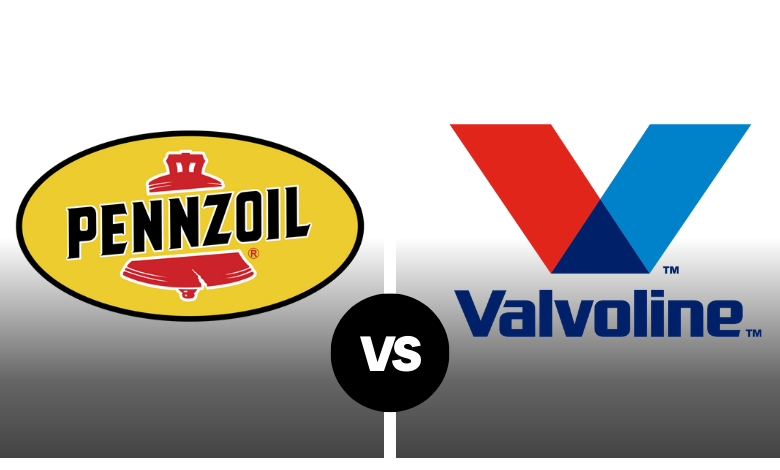Pennzoil vs Valvoline

Pennzoil and Valvoline are two of the world’s best-known motor oils, both providing exceptional performance for your vehicle but each offering distinct differences that should be taken into consideration when making your selection. We will compare different features for Pennzoil vs Valvoline.
Pennzoil employs a robust additive package compared to industry standards, including molybdenum and boron, that helps reduce friction during operation of engines. Just like Castrol Edge vs Pennzoil Platinum, we make a detailed comparison.
What is Pennzoil?
Motor oil is one of the essential elements of automotive maintenance, protecting against wear and tear while increasing engine efficiency and minimizing pollution caused by deposits and corrosion. Therefore, when selecting oil for your car it must meet the specifications recommended by its manufacturer.
Pennzoil full synthetic motor oil is a top-of-the-line full synthetic product designed to fit most cars. Its high mileage formula was engineered to extend between oil changes, while providing superior wear protection than competitors. Furthermore, advanced additives help prevent oil breakdown for maximum engine performance in low temperatures.
Pennzoil had its share of troubles in the past, but since being purchased by Shell in 2002 they now produce some of the world’s finest motor oils. Many vehicle manufacturers recommend it and even utilize some factory fills with this brand of oil.
Pennzoil offers both conventional and synthetic engine oils in various viscosity grades. Their full synthetic oil is the most expensive but still competitively priced with other premium engine oils; additionally, it boasts greater heat stability so can be used more frequently under extreme temperatures than its competitors.
What is Valvoline?
Valvoline Lubricants Company was established in 1866. Valvoline’s signature product is motor oil, for which they have earned a great deal of respect among car owners and mechanics. Furthermore, they produce other fluids and chemicals which help optimize vehicle performance.
This brand is known for their superior synthetic engine oil products and offers various viscosities to meet the needs of each vehicle. Furthermore, advanced additive technology helps extend oil lifespan while offering better fuel economy; plus they offer quick maintenance services like tire rotations and battery replacements.
Valvoline engine oil has earned rave reviews from independent testing organizations and eleven car manufacturers, and is often recommended by them. This is a good example for Pennzoil vs Valvoline.
Difference Between Pennzoil and Valvoline
Pennzoil vs Valvoline is an important issue for those who are more sensitive to their cars, even though it gives similar results in many areas. Valvoline engine oil helps protect against damage and friction to extend the lifespan of your vehicle and stretch fuel farther. Recommended by numerous automakers.
The company’s oil is a combination of conventional and synthetic base oils with premium additives like molybdenum and boron for enhanced engine performance. Ideal for high-speed driving and frequent acceleration, its application makes this oil suitable for cars equipped with turbo engines or diesel engines alike.
Pennzoil vs Valvoline is one of the most curious comparisons about motor oil in recent years.
Pennzoil motor oil is an excellent all-weather option that has ratings to handle both hot and cold temperatures, and is particularly well suited to older cars with reduced power. As a blend of synthetic and conventional oil, its engine oil provides protection from corrosion while simultaneously improving fuel economy. Pennzoil vs Valvoline are not dramatically different products from each other in terms of price.
Pennzoil vs Valvoline have earned their reputation as trusted brands in the world of automotive lubricants. They understand that vehicles come in different shapes and sizes, and people drive under various conditions. That’s why they offer a diverse range of viscosity grades, including both conventional and synthetic oils, to suit the specific needs of different vehicles and driving situations. They even go the extra mile by providing specialty formulations like high mileage oils, designed to provide extra care for older engines.
Pennzoil and Valvoline are highly respected among car owners and mechanics, each offering distinct advantages over one another. It is enough to mention these for Pennzoil vs Valvoline. Deciding between them depends largely on your budget and preferences, Valvoline tends to be slightly more costly in all viscosity grades except 5W20 but the difference is negligible; on the other hand, Pennzoil’s full synthetic oil costs more. We made a comparison like in “Pennzoil vs Mobil 1“.
